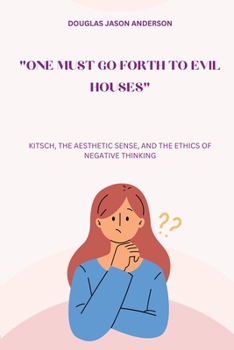One Must Go Forth to Evil Houses
The faculty of taste as a dialectical unity of sensual and moral pleasure (or displeasure), an idea first consolidated as an effective concept by Immanuel Kant, has been fully commodified by capitalist-consumerist culture. Algorithms track the minutest habits of our online footprints, accompanied by a vast and anarchic network of scheming profiteers sending constantly morphing sign patterns to our brains, designed to accommodate and alter the mapped trajectories of our desires. Beyond the virtual, ideas and products are sold on the basis of individual and corporate adherence to normative rules of thought and conduct. Surveillance capitalism, the recently termed phenomenon of "wokeism," and religious fundamentalism (to name a few major coordinates of the present) all participate in and respond to these realities. It is in this medial and ideational landscape that the faculty of taste operates today and in which it must work to attain an ethical orientation, individually as well as corporately, personally as well. as politically. But these developments cannot be disavowed, and these processes cannot be reversed, because they are the most forceful logical conclusions of the very Kantian. transcendental aesthetic that gave their initial conceptual form to reality. Now, the very concept of taste itself, falsely concretized
Related Subjects
Philosophy




